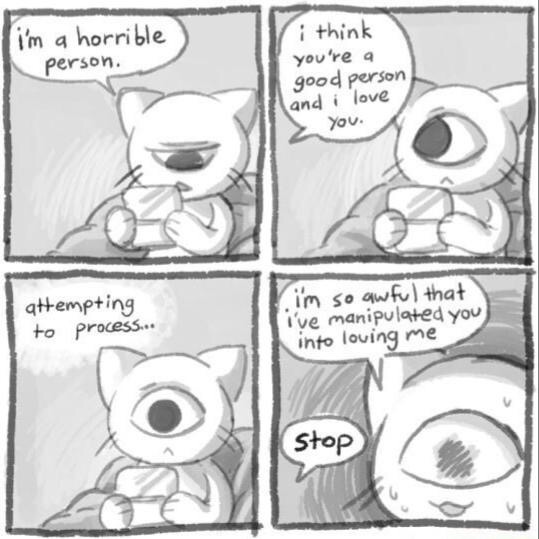

Armchair philosophy took hold of me around the time I started medicating. If I was going to exist in this world, I wanted a reason why. And I did find it, within Albert Camus' essay on the myth of Sisyphus. But this didn't solve my problems. My mental instability didn't vanish after my anticlimactic revelation about the meaning of life. My genes didn't decide to alter themselves. The emptiness was still present.
"How much longer do others plan on indulging my selfishness? How long until they realize that the energy I suck from them is nowhere near the amount I replenish? At what point does the relationship become toxic... Wouldn't it be better if I could just shut myself away for a while and get better without burdening anyone else... I know that's not how it works. I need others to get better. But do the others need me to get better? What if they decide I'm not worth the trouble. I want to be good enough, I want to be worth the effort."-2022
Armchair philosophy helped me gain new perspective on life and changed the way I approached happiness. Before I often felt like a parasite on the earth. I felt like there was no reason to continue living if my very existence was a burden on others. I eventually realized that my life should be lived for my own sake and not others. This gave me the freedom to do whatever I wanted with no regards for others. This also gave me the freedom to do whatever I wanted for others. No longer out of feelings of obligation, but out of my own free will.